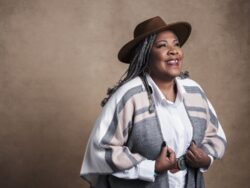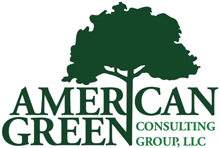
About our guest author: Melody Starya Mobley’s experiences as the first black woman serving as a forester for the USDA are remarkable: both for the firsts she embodies and for the years of abuse and oppression she experienced within that system.
Now, Melody shares her personal stories to create positive change for groups historically excluded from accessing American natural spaces.
With the few federal protections that exist currently being stripped away, it’s more important than ever for stories like these to be told. To read more of Melody’s writing, visit her website.
Image credit: Kirth Bobb
DEI opens up a wealth of talent
Diversity, equity, and inclusion (DEI) are vital to address fast-changing demographics and global problems more complex than ever in the past. DEI is designed to give everyone the same opportunities that the White male majority has always had, which means we can recruit from all the best and brightest, even if they might not otherwise have access to the workplace.
DEI increases our capacity to hire experts to solve our issues:
- Global climate change
- Heating and acidification as more CO2 is absorbed by the oceans
- Degradation of large-scale watersheds
- Melting of glaciers and the polar ice caps and fields
- Loss of air quality due to factories, vehicles, and wildland fires
DEI matters for each of these: we need the best and the brightest on the planet to address these issues everywhere, not just the small pool of White males.
Organizations that embrace DEI today will thrive tomorrow
U.S. demographics are also changing: in 2043, the U.S. will consist predominately of non-White people. Non-White, racial and ethnic groups will make up more than half of the population. Additionally, the White population is aging, with more deaths than births. The non-White population is growing, especially multiracial, Asian and Hispanic. There will be fewer White males to choose from in the future, and that pool will keep getting smaller.
Diversity, equity, and inclusion will become more critical because our workforce will otherwise become too constrained, and we won’t be able to find the expertise we need. Those organizations that have strong, favorable DEI cultures will thrive. Others, not so much.
DEI is vital for supporting our natural resources
Currently, DEI is fiercely under attack by the federal administration, some state governments, and others who have maintained an advantage in the workforce simply due to their race and gender. Immediately upon taking office, the U.S. president ordered that all federal DEI positions be abolished. Fearing loss of federal funding, many non-federal organizations have followed suit.
What the president and these agencies don’t understand is that DEI has never stopped being important. There is a prevalent, false belief that DEI programs have completed their task and racism is dead now. This is far from the truth, especially in natural resource-related professions and programs. Not only are women and people of color far from parity within the civilian labor force, but there also are not enough students of color pursuing natural resource studies.
I became the first Black female forester in the USDA Forest Service in 1977. In July 2020, there were still only six Black female foresters and 26 Black male foresters out of 1,356 foresters. (I had to directly ask Virginia Senator Tim Kaine for that data because the agency would not give it to me even though it was readily available.) With the elimination of DEI programs and the rampant firing of entry-level and other employees, I fear that they will lose the few foresters of color that they have now—which means losing all their expertise.
I was hired because I am a Black woman, but I was retained and promoted because of my performance and skills. Sometimes people will just choose any woman or person of color because of their demographic, without taking time to look at their skills and ensure they are highly qualified and a good fit for the position. That hurts the whole team and feeds that false belief about DEI doing more harm than good.
When I worked for the Forest Service, I was told constantly that I was only hired because I am a Black woman, Black women are only good for one thing, and other slurs unfit to reproduce here. There is a lot of baggage that DEI hiring brings with it, and occupying a DEI-space on a team can make that member a target for prejudice.
Effective DEI policies build better futures for all
An excellent DEI policy leads to a workplace that is free of bullying and hostility, harassment, and unlawful discrimination, promoting dignity and respect for all. It increases productivity and potential through the input of differing ideas and perspectives.
When the workplace welcomes all and every employee’s input is valued, retention is greatly increased—as well as our capacity to tackle tough problems. Check out my next post with my thoughts on what an effective DEI policy entails.
![]()
Read more of Melody’s writings
on the American Green blog.
